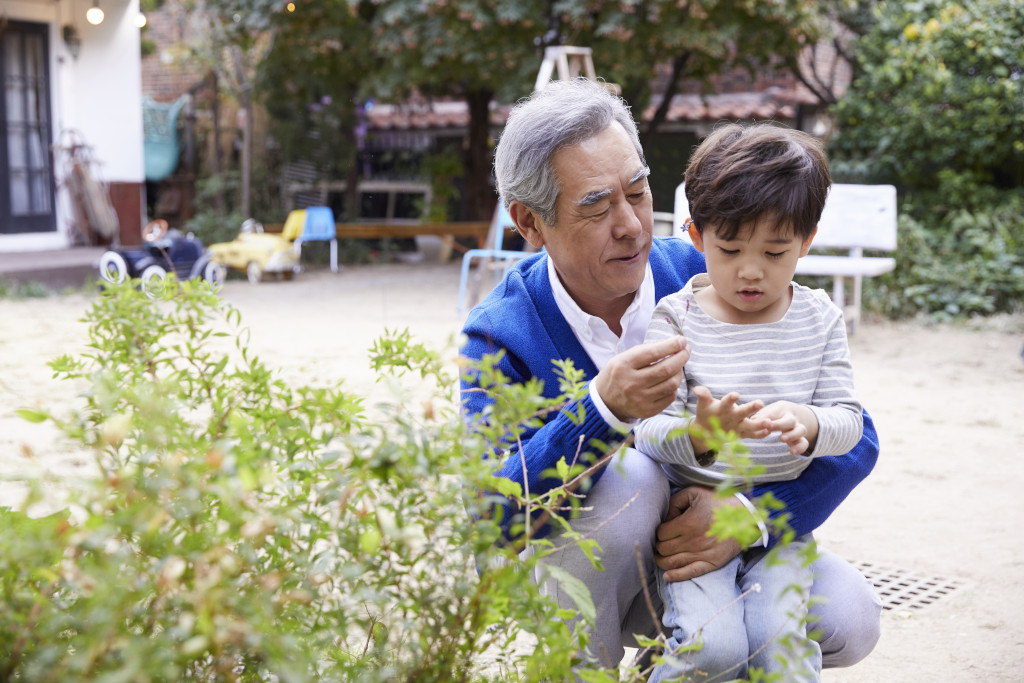SingaporeMotherhood | Parenting
October 2021
“My In-laws Want Me to Raise My Child Their Outdated Way!”

“My mother-in-law keeps saying my milk is not enough and insists on giving my baby formula. I’m frustrated because my husband doesn’t seem to back me up, and I’m too tired to fight her. What should I do, Junia?” Issues with the in-laws. Sound familiar? “Pick your battles,” I quipped, with a wink.
This young mum seemed to be asking for a solution to this particular incident. But the reality is that she is not alone in her experience with her in-laws. It can happen with your own parents and other family members and relatives too. The problem escalates for couples who need their in-laws to look after their child because both parents are working.
All family dynamics differ, but the more time a nuclear family spends with the in-laws, the higher the number of potential conflicts. So, what do you do when there is a disagreement on how to raise your child?
(See also: 10 Expert-recommended Tips for a Successful Breastfeeding journey after Giving Birth)
Seek Common Ground
First, we have to recognise that everyone has the child’s best interest at heart. Even if it doesn’t seem so to you at that moment. Once you’ve accepted this, the question becomes: How do we balance respect with autonomy?
We start by finding that common ground.

Conflicts arise because of different strategies. Take the time to understand the reason for an action, no matter how ludicrous it seems to you. In doing so, you will have taken the first and most critical step towards identifying that common ground.
For example, I used to get triggered when my aunt would smack the floor or table whenever my daughter fell or hit her head. “Bad table,” she would say.
I thought it was ridiculous she was blaming the objects. I wanted my children to increase their internal locus of control, not grow up as victims, blaming their external environment for things that did not go their way.10 Expert-recommended Tips for a Successful Breastfeeding journey after Giving Birth
(See also: 4 Ways you can Empower Your Daughters)
Instead of lashing out and judging her actions as stupid, outdated, or old-fashioned, I decided to understand where she was coming from. “Why do you do that?” I asked after one episode.
“So that she won’t cry,” was her simple answer. I gained so much insight just by enquiring. By withholding my opinions and judgements, I was able to open a space to connect.
Enquire into Their Rationale
“Ah… now I understand. You want to comfort her and protect her, especially from pain. At the same time, I’m concerned that she might blame things if they do not go her way. Would you want your grandniece to blame the bus for being late, or her classmates for not lending her things?”

“You think too far. That won’t happen.” My aunt was sure I was making a mountain out of a molehill. I thought, maybe there was some wisdom in what she said. I was projecting a future and reacting to that future that was not even happening in the present! Now I saw how imaginative I was, and negatively too. So, I acknowledged her observation.
“You are right. I am worrying about a future that hasn’t even happened. Yet, how does calling the table or floor bad when she hurts herself build positive values for her?” I really wanted to know.
“I’m not sure,” she began. “That’s what my mum used to do, so I was just repeating it. I never really thought about why.” The moment she uttered it, it dawned on her that there was no rationale to support her actions.
(See also: “My Daughter Wants Me to Be More Like You!”)
Engage Them for Solutions
“Thank you for sharing where that came from,” I offered. “We know that it’s not the table or floor’s fault when she hits her head or falls, right? How else do you think we can respond so she’s still comforted the next time she falls?” Quickly establishing the common ground of comforting the child, I invited her to come up with an alternative solution.
“Hug her. We can hug and kiss her head!” She beamed upon her idea.

“Sounds great! I’ll remember to do that too… so we’re both on the same track. Thank you for understanding my concerns and creatively coming up with something that is far better than a habit that has no grounds.” I affirmed her resourcefulness, and in that moment, we both connected at a deeper level.
For me, I was not holding back a concern I had. I actually had newfound respect for how she was open enough to consider a different action.
For her, she experienced the collaboration we had. It also meant that she would be more open to seeing things from my perspective the next time.
All because I started from a space to understand her. In entrusting her with the opportunity to come up with an alternative, she could own that new solution she created. In fact, she was so empowered that she started boasting to neighbours about how blaming objects is silly, and hugging the child is a preferred solution.
(See also: 5 Essential 21st-Century Skills every Child Needs to Learn Today)
Bridging the Generational Gap
This solution came out of a single conversation. Sometimes, it takes a few conversations, especially when trust has not been built. But the same S.E.E principles apply.
- Seek Common Ground – What’s an outcome both parties want?
- Enquire into Their Rationale – What’s their logic or reason for their actions?
- Engage Them for Solutions – What’s an alternative new action towards our common objective?
While these three steps seem straightforward on paper, they aren’t always easy to actualise.

That’s usually because of the baggage that we may have. The negative biases that cloud our thought processes is something that takes work to clean out. Only then can we successfully have an impactful S.E.E conversation. The good news is, the more we work on ourselves to clear our lenses, the more effectively we can deal with issues in that moment.
So for the young mum who felt so alone in her battle to fully breastfeed her child, my advice was for her to first practise S.E.E on her husband. And then, having his support, to seek to understand the grandmother of their child. Because when our elders experience being respected, they, in turn, become our partners in bringing up our children in newly created ways.
Instead of keeping our in-laws or parents at arm’s length, take the first step towards reconciling any differences. You’ll have fewer conflicts, less frustration, and your children benefit from a precious relationship with their grandparents. After all, it takes a village to raise a child — why do it alone?
(See also: The Importance of Grandparents in a Child’s Growth & Development)
 | Author of “The Naked Parent”, founder of Mum Space, and mother to five amazing children, Junia is a respected thought-leader in the parenting space. Recognised for empowering parents and kids with her 21st-century parenting model for over a decade, she now brings her ‘Modern Asian Mother’ expertise and experience to this exclusive SingaporeMotherhood column. |
All content from this article, including images, cannot be reproduced without credits or written permission from SingaporeMotherhood.
Follow us on Facebook, Instagram, and Telegram for the latest article and promotion updates.





